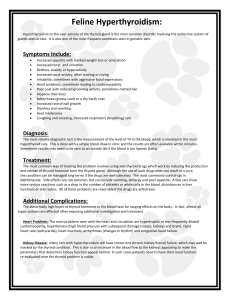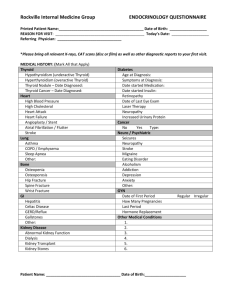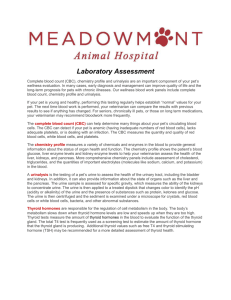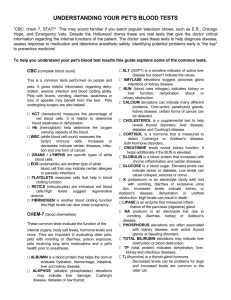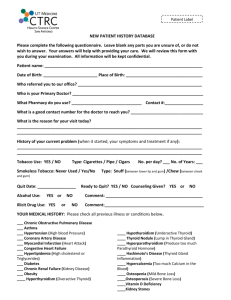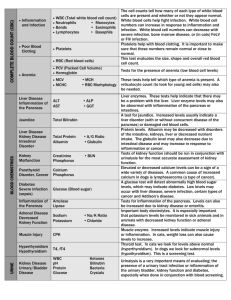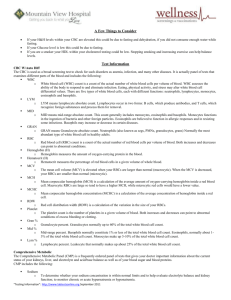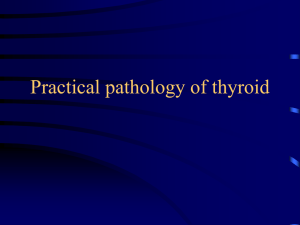Wellness Exams and what all those tests mean
advertisement
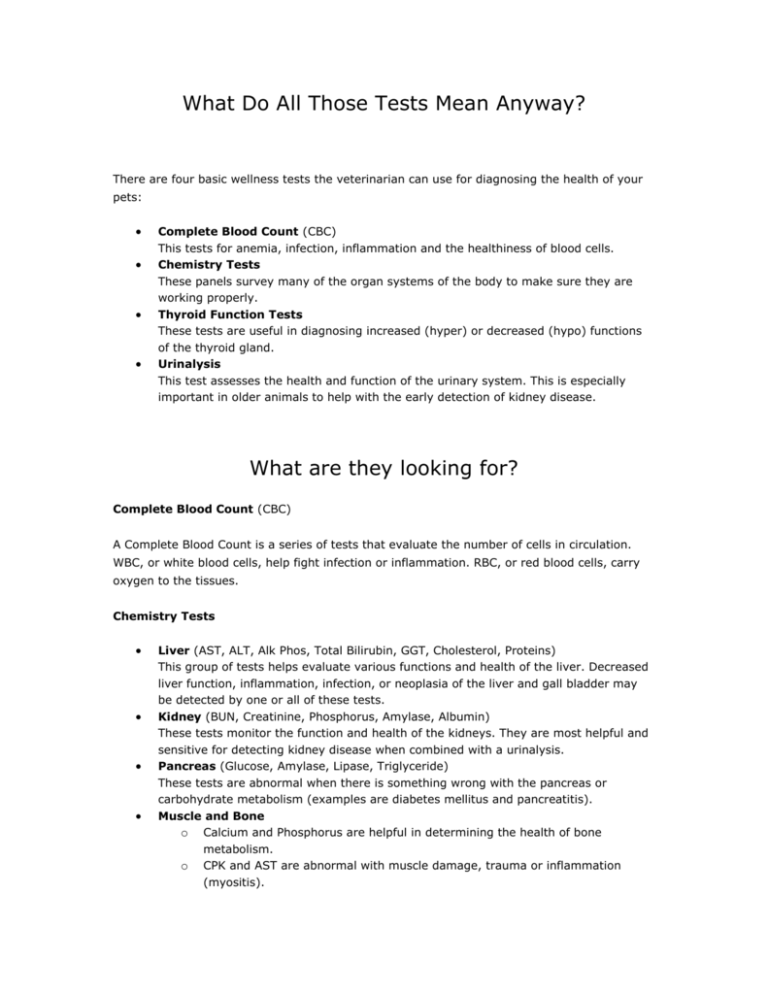
What Do All Those Tests Mean Anyway? There are four basic wellness tests the veterinarian can use for diagnosing the health of your pets: Complete Blood Count (CBC) This tests for anemia, infection, inflammation and the healthiness of blood cells. Chemistry Tests These panels survey many of the organ systems of the body to make sure they are working properly. Thyroid Function Tests These tests are useful in diagnosing increased (hyper) or decreased (hypo) functions of the thyroid gland. Urinalysis This test assesses the health and function of the urinary system. This is especially important in older animals to help with the early detection of kidney disease. What are they looking for? Complete Blood Count (CBC) A Complete Blood Count is a series of tests that evaluate the number of cells in circulation. WBC, or white blood cells, help fight infection or inflammation. RBC, or red blood cells, carry oxygen to the tissues. Chemistry Tests Liver (AST, ALT, Alk Phos, Total Bilirubin, GGT, Cholesterol, Proteins) This group of tests helps evaluate various functions and health of the liver. Decreased liver function, inflammation, infection, or neoplasia of the liver and gall bladder may be detected by one or all of these tests. Kidney (BUN, Creatinine, Phosphorus, Amylase, Albumin) These tests monitor the function and health of the kidneys. They are most helpful and sensitive for detecting kidney disease when combined with a urinalysis. Pancreas (Glucose, Amylase, Lipase, Triglyceride) These tests are abnormal when there is something wrong with the pancreas or carbohydrate metabolism (examples are diabetes mellitus and pancreatitis). Muscle and Bone o Calcium and Phosphorus are helpful in determining the health of bone metabolism. o CPK and AST are abnormal with muscle damage, trauma or inflammation (myositis). Electrolytes (Sodium, Potassium, Chloride, Calcium, Phosphorous) These tests are important in monitoring the electrical, water balance and cellular health of the body. Deficiencies or excesses of these electrolytes are harmful to an animal's physical and mental well-being. Thyroid Tests As the name implies, thyroid tests evaluate the function of the thyroid gland. Too little thyroid hormone (hypothyroidism) is common in dogs whereas too much thyroid hormone (hyperthyroidism) is common in older cats. Because there is no single thyroid test that can diagnose all thyroid diseases in animals, several different thyroid tests are used to assure proper results (T4, T3, Free T4, etc.). Urinalysis While some serum chemistries help evaluate kidney function (BUN, Creatinine, etc.), they are more informative when a urinalysis is done at the same time. The urine sample is tested for several chemical components (glucose, protein, blood and more) as well as any cells (WBC, RBC, epithelial, etc.) or crystals. What Diseases can a CBC, Chemistry Test, Thyroid Test and Urinalysis help check for: Liver – inflammation, degeneration and cancerous liver disease Kidney – failure, kidney stones, kidney infection and kidney insufficiency Heart and Lungs – cardiac disease, pneumonia, bronchitis and emphysema Endocrine System – diabetes mellitus, hyperthyroidism, hypothyroidism, hypoadrenocorticism, hyperadrenocorticism Cancer – cancers of the skin, spleen, liver, lymphoid tissue, etc Gastrointestinal Disease – inflammatory bowel disease, pancreatitis, cancer, colitis These tests are also used before any long-term chronic medications are given.
